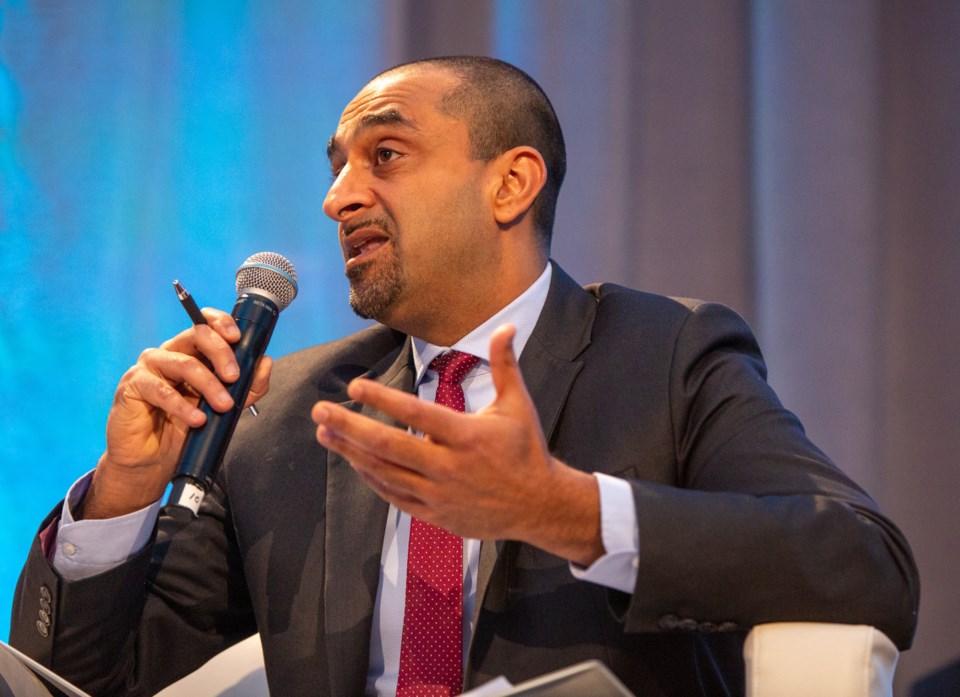He has only had the housing ministerial portfolio for a year, but NDP Housing Minister Ravi Kahlon has emerged as a major political force within the NDP government.
Kahlon, who is also the government house leader, shepherded through the legislature during the fall sitting four landmark pieces of legislation that represent the biggest upheaval of housing laws in B.C. history and that also fundamentally alter the very nature of municipal governments.
First elected in 2017 and first appointed to cabinet as Jobs Minister in 2020, Kahlon is the NDP government’s point man on the most ambitious part of the government’s agenda.
The targets he has set for new housing — about 250,000 units over the next 10 years — are almost mindboggling in scope and it is far from clear whether he can pull this off. It may be several years before we get a solid read on the impact of all the changes.
Even the authors of the "modelling report" he commissioned hedged their bets when it came to making solid projections and predictions, noting that "assumptions" were based on a lot of different factors that could change over time.
Nevertheless, the plan is largely in place. Now we shall see how things play out at the local level, and just what kind of potential fights Kahlon gets into with mayors and councils who don’t like their wings getting clipped and their traditional turf encroached on.
Given that we are heading into an election year, I suspect Kahlon will try to employ a soft touch when dealing with recalcitrant mayors and other municipal officials. While Bill 44, the Housing Statutes (Residential Development) Amendment Act, does give him the power to issue direct ministerial orders regarding bylaws, zoning and regulations, I doubt he’d use these nuclear options in an election year.
Still, there is an urgency regarding the housing crisis and taking baby steps is not going to get it done. But there are nagging questions: can municipalities afford to build the infrastructure — sewage and water pipes, hydro lines — that is required with a large increase in housing, and are there literally enough skilled construction workers to build all those units?
Then there is the question of whether housing will become more affordable even with all these changes. The modelling report estimates that prices will continue to climb (single family lot prices are expected to climb 7.5 per cent in the short term) but says the increases will be smaller than if nothing was done.
The housing crisis has vexed government at all levels and of all ideologies. The B.C. crisis is unique in scope and complexity and we simply don’t know if these massive changes are going to solve something considered unsolvable for years.
At the very least, the sheer scope and size of the legislation leaves the impression that the government is actually setting a lot of wheels in motion in order to tackle the problem. That’s not a bad look to take into an election year.
And Kahlon will be the face of this unprecedented attempt to right the housing ship. For the past few years, the NDP government has largely been dominated by ministers such as Health Minister Adrian Dix and Public Safety Minister Mike Farnworth, who largely led the government’s response to the pandemic, as well as the two premiers.
Now it’s Kahlon’s turn to take the stage.
Keith Baldrey is chief political reporter for Global BC.



